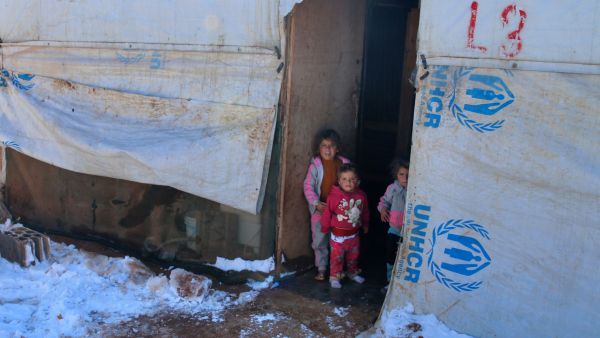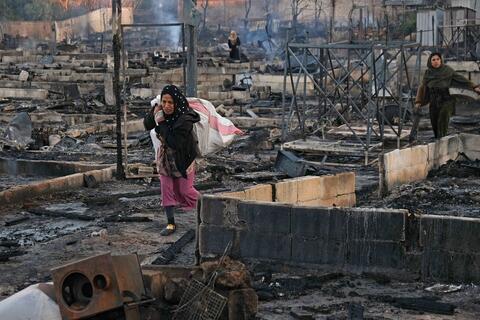The UN Refugee Agency, UNHCR Lebanon, is under fire after sharing a video promoting the resettlement of Syrian refugees from Lebanon.
'Resettlement is a limited solution. But It is a key solution," UNHCR Lebanon said in a video that was widely criticized on the internet.
Resettlement is a limited solution.
— UNHCR Lebanon (@UNHCRLebanon) October 11, 2022
But it is a key solution for many refugees who cannot go home and have specific needs that cannot be addressed in their country of asylum.
Resettlement places are key to help the most vulnerable in Lebanon. @Refugees @VoicesWRefugees pic.twitter.com/eVuGdbzfUc
UNHCR Lebanon revealed that 9 out of 10 Syrian refugees in Lebanon are living in 'extreme poverty'; adding that last year, half of the refugees resettled from Lebanon were women and children.
The video's timing was also slammed as the Lebanese presidency revealed a plan to repatriate Syrian refugees from Lebanon to war-torn Syria starting next week despite condemnations by rights groups.
The Lebanese People refuse this solutions.
Why do they still insist on forcing resettlement on us.
Stop! https://t.co/AqlRvm7IG0— مارون (@maroun_af) October 12, 2022
The Lebanese government supported the return of Syrian refugees saying it is for the best as the country, which has around 1.5 million Syrian refugees, is being costed billions of dollars on refugees in the light of the deteriorating economic situation, Lebanon is facing.
Syrian refugees who might be 'forcibly' resettled from Lebanon back to their homeland face unknown destinies, according to human rights groups.
The BBC revealed that Syrian refugees who are using TikTok to appeal for financial help are having 70 percent of the proceeds taken by the company. https://t.co/nlhUvsfyZI
— AI and Global Stability Initiative (@MIGS_AI) October 13, 2022
On the other hand, a recently released BBC report says that TikTok is allegedly benefiting by up to 70% from the funds raised for Syrian refugees through the app's live stream.
Loads of Syrian families are using TikTok to request financial help through live streams. However, a report by BBC claimed that the Chinese company is profiting by up to 70% from the money raised for these Syrian families.








